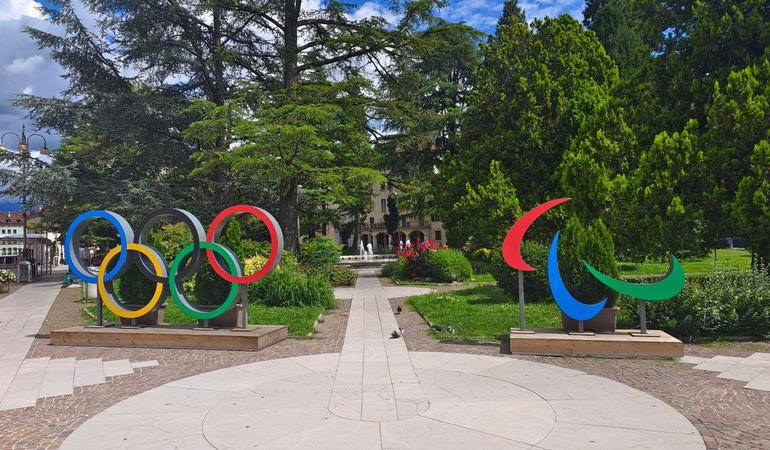
Milano-Cortina. Ecco come verranno spesi i 450 milioni di euro delle paralimpiadi


8 luglio 2024
Relatives of the innocent victims of mafia and terrorism will be able to access the economic benefits provided by the State, even if they have family members convicted or involved in criminal proceedings. This was decided by the Constitutional Court (sentence No. 122 of 21 May 2024) declaring the constitutional illegitimacy of Article 2-quinquies, paragraph 1, letter a), of Decree-Law No. 151 of 2 October 2008, concerning 'Urgent measures on the prevention and detection of crimes, and the fight against organised crime and illegal immigration'.
Technicalities aside, this is a historic pronouncement that marks a new beginning after years of battles led by the victims' families and, in particular, by Libera, the Italian network of association fighting against organized crime and for social justice. After this ruling, the State will have to evaluate every request made by relatives to access economic benefits (which it would be more correct to call rights), without the automatism of the fourth degree of kinship blocking the process in the bud, as has happened too many times in the past.
'In many cases,' explains Daniela Marcone, head of Libera's Memory area and daughter of Francesco Marcone, the director of the Foggia registry office killed by criminality on 31 March 1995, 'these people have nothing to do with their relatives, but until now the bond of the fourth degree of kinship has excluded them from access to benefits. Having economic support is essential to live and face legal expenses. When you join a civil action in a trial, no one offers you anything, lawyers have to be paid immediately and we know that some proceedings last for years.
The Constitutional Court's ruling follows an order of the Naples Court of Appeal, which on 16 November 2023 raised the issue of legitimacy after denying benefits to the family members of Gelsomina Verde, the woman killed by the Camorra in Naples on 21 November 2004. A relative 'within the fourth degree' with a criminal record blocked the application, excluding direct family members from any form of contribution.
The ruling contains some fundamental passages that dismantle the rationale of the fourth-degree restriction. In particular, the Court's judges explain how 'the purpose of preventing public resources from being diverted to the benefit of persons linked to organised crime would already be satisfied by the requirement of extraneousness to such circles'. Moreover, the 'rigid provision dictated by the law, moreover applicable only to survivors and not to the person directly injured, would imply a real discrimination based exclusively on family origin'.
Mafia, the story of Francesca Morvillo, the judge killed in 1992 with Giovanni Falcone
In fact, the denial of benefits infringes the right of defence protected by Article 24 of the Italian Constitution, according to which 'everyone may take legal action to protect his or her rights and legitimate interests'. The judges then observe how it is 'not at all impossible, let alone difficult, in reality, for individuals who have even close kinship or affinity relations with members of the criminal environment to be extraneous to it'.
Examples in this sense are numerous. Consider, for example, the story of Rita Atria, who grew up in a family of mafiosi but was courageous, at only 17, in breaking all ties with her relatives and becoming a witness for justice. Rita died by throwing herself from the balcony of the seventh floor of a building in Rome on 26 July 1992, a week after the assassination attempt on Judge Paolo Borsellino, with whom she had formed a very strong bond. Before killing herself she wrote in her diary: 'Now that Borsellino is dead, no one can understand what a void he has left in my life. Everyone is afraid but the only thing I am afraid of is that the Mafia State will win and those poor fools who are fighting windmills will be killed'.
Motivating its ruling, the Constitutional Court does not exclude that in many criminal families there are 'ties of mutual support, connivance or tacit sharing' and it is therefore understandable that the legislator's intention in introducing the fourth-degree tie was to prevent any misuse of public money by the mafias. "The purpose, while legitimate, is nevertheless pursued by disproportionate means," the Court explains with extraordinary effectiveness.
The judges add: 'It is therefore immanent in the system that there is a need for strict verification of radical extraneousness to the criminal context. Extraneousness, moreover, does not end in the mere condition of being incensed or, in the negative, in the lack of affiliation to criminal syndicates, but postulates, in the positive and more pregnant sense, the proof of a conduct of life antithetical to the code of conduct of criminal organisations. The burden of persuasive proof of extraneousness, which becomes a constitutive element of the right, falls on those who claim benefits or life allowances, and the lack of adequate proof is to the detriment of those who claim the benefits".
'With this pronouncement the State has no more excuses,' Marcone further explains, 'now there is a backing card and no one can ignore it. However, we must take note that in recent years it has been the judiciary that has given answers. Magistrates who have denounced the unconstitutionality of the rules; who have explained how prescriptions and forfeiture with respect to these benefits cannot exist; who recognise a real right to truth and a right to grieve in their rulings. On the other side, unfortunately, the blockade of the world of politics persists. To generalise is never right, but in fact these issues are often residual, they always take a back seat. We fill our mouths with words about the stories of the innocent victims of the mafia, with initiatives and commemorations, but then we forget that behind every tragedy there is a family that suffers and waits. Through the benefits to the victims we recognise the right to mourn and grieve, it is not, as some say, just about money'.
La tua donazione ci servirà a mantenere il sito accessibile a tutti
La tua donazione ci servirà a mantenere il sito accessibile a tutti